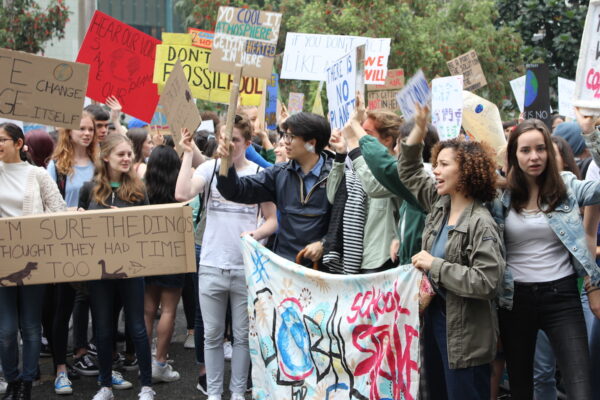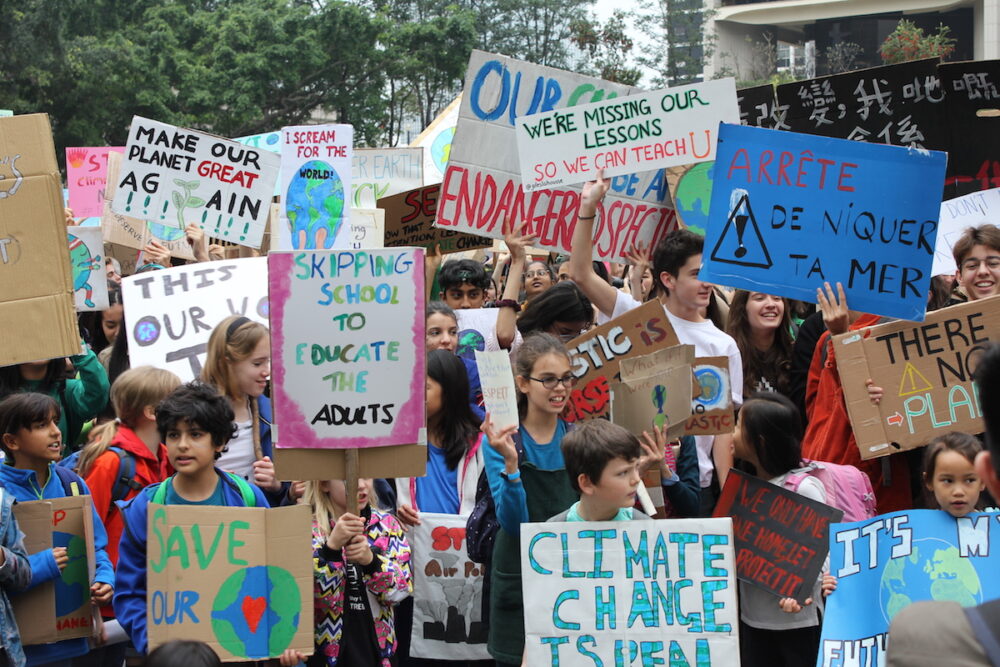A thousand students from two dozen Hong Kong schools support global school strike
Dikang, Socialist Action
“We want action!” was the most popular demand when around a thousand school students supported by teachers and parents flooded out of Hong Kong’s Chater Gardens towards Government Headquarters.
The strike and demonstration on 15 March was part of the global climate school strike, triggered by the protests of 16-year-old Swedish activist Greta Thunberg. In what could be a landmark day of youth protest worldwide, similar demonstrations and student walkouts were expected in over 90 countries from Bangladesh to Brazil.
New Zealand and Australia were first out with at least 150,000 youth demonstrating around Australia and a reported turnout of 3,000 in Auckland.
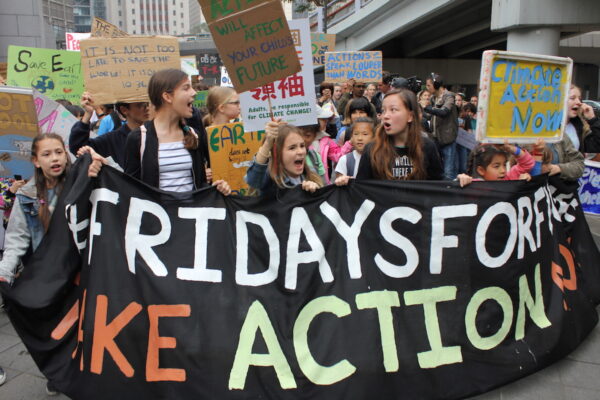
Socialist Action (CWI in Hong Kong) joined the Hong Kong strike and distributed a statement calling for a democratic student union to be formed in every school to build for new action in the near future. Many students and parents signed the petition of Socialist Action and bought Socialist magazine, and many agreed spontaneously with our statement “capitalism is the problem”.
As a coastal city, Hong Kong will be hit hard by climate change, as sea levels rise and extreme weather becomes more common. Super typhoon Mangkhut in 2018, the most powerful storm on record, was a warning. Yet the Hong Kong government has done “next to nothing” to address climate change according to the South China Morning Post.
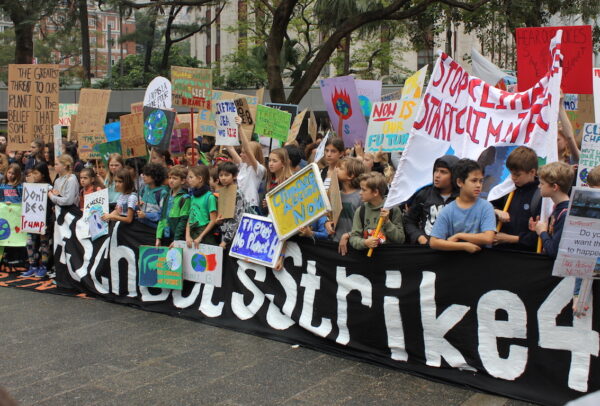
Big business
The unelected Carrie Lam government is a servant of the billionaire tycoons and big companies, which is why the government refuses to impose a radical but necessary carbon reduction plan. This would threaten the profits of big business, and for them money always comes first.
They try to con the public into being climate conscious on an individual basis, by switching off lights and using fewer plastic straws. But this is like trying to empty the ocean with a teaspoon. 71 percent of all carbon emissions since 1988 have been caused by just 100 global companies. China’s national coal company alone accounts for 14 percent of global emissions. We need to get democratic control over these giant companies to change the way they work. There has to be an urgent switch to a zero carbon economic model.
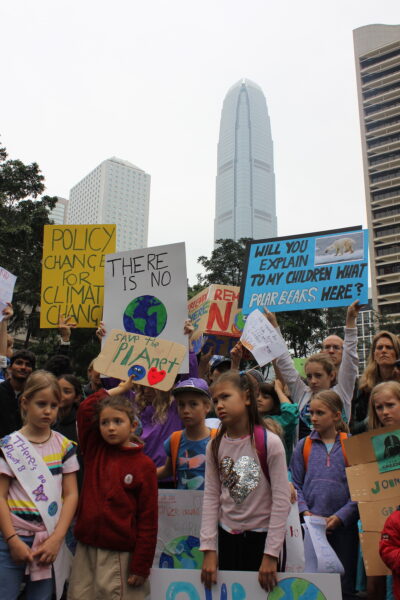
To strike is right!
Those voices saying students shouldn’t go on strike and march are showing ignorance about how serious the climate crisis is. They fear young people becoming more political and fighting for their beliefs.
The Education Bureau and the Hong Kong government denounced the idea of students “boycotting classes” and claimed there were “other ways” to engage over the climate, but the youth who staged the strike correctly ignored this pressure. They were clear that this is just more empty talk from out of touch officials and politicians.
Schools also sent out letters warning parents and students not to strike and in at least one case advocated as an alternative to striking that students bring their own cutlery to school and reconsider their “consumer habits”.
Such statements are a diversion and completely understate the scale of the climate crisis. Organised collective action is needed on a mass scale, rather than lame appeals for people to change their personal lifestyles. As last year’s IPCC report warned we only have 12 years to take radical action to avoid irreversible and disastrous climate change.
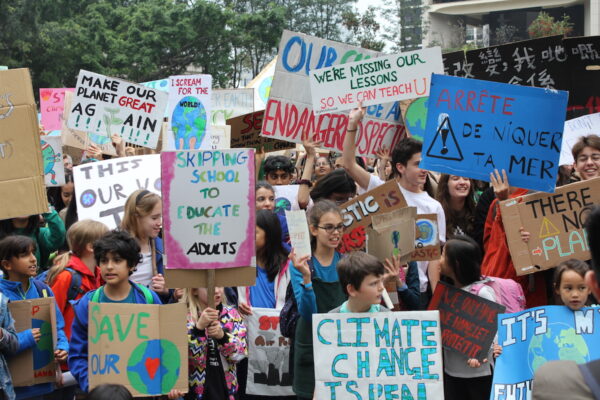
Organise!
The 15 March global strike is an impressive start, but only a start. There is a need to organise in every school, to spread the movement. In many countries – like Germany, Belgium and the UK – students are organising strikes and walkouts on a weekly basis because one-off demonstrations are not enough.
There’s a need to build a new student union at different Hong Kong schools, which link up in a citywide mass student union. Students at every school can give out leaflets and organise rallies to recruit schoolmates to join the union. Regular meetings are needed to discuss and decide the strategy and tactics on how to take the movement forward. With an active membership and democratic structures a mass student union can be indispensable for taking the struggle forward.
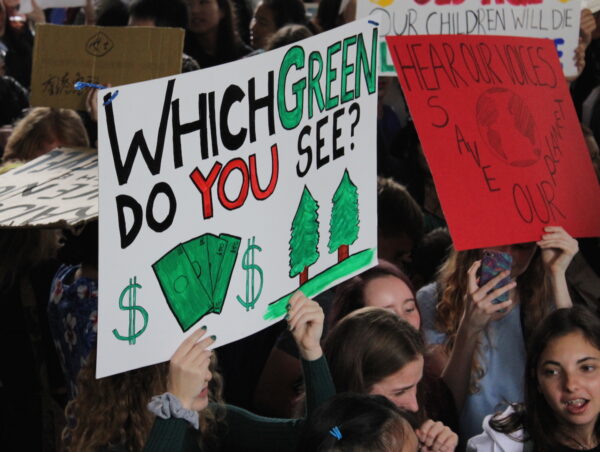
Strike action like this can have a huge effect in societies like Hong Kong’s where the workers’ movement is weak and strikes have been few and far between. Even at the height of the pro-democracy Umbrella Movement in 2014, with up to 1.2 million people taking part, the idea of a political strike against the government by students and workers – whose role is key because they have the power to really change things – never gained traction.
The 15 March climate strike is therefore very significant as a political event and not only as a shining example for the environmental movement. The strike was mainly mobilised among foreign students in the English language schools, but their example could also inspire students in the majority Chinese community to follow suit.
To be successful the movement against climate change has to fight against capitalism and the rule of the billionaires. Socialist Action calls for a free public transport system using clean energy. This would sharply reduce car usage and can be funded by taxing the rich and taking the main economic sectors into democratic public ownership. A democratic socialist plan for the economy would make it possible to invest massively in green technology.
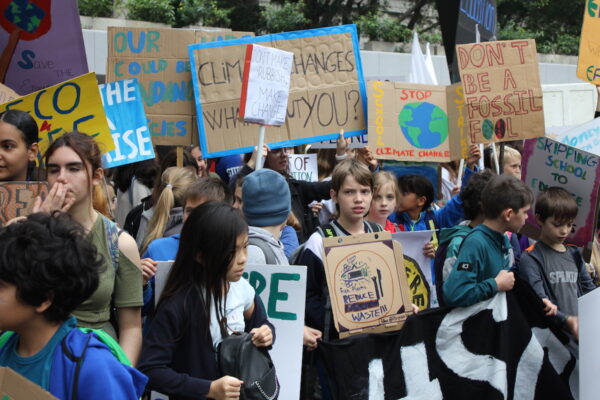
The global strikes of 15 March can be a historic starting point. New action is needed to keep up the momentum, and this requires democratic organisation in schools but also reaching out to workplaces to plan and discuss the next steps. Socialists will be active in this struggle also to sharpen and clarify what demands should be fought for and pose the need for a socialist programme to save the planet.
